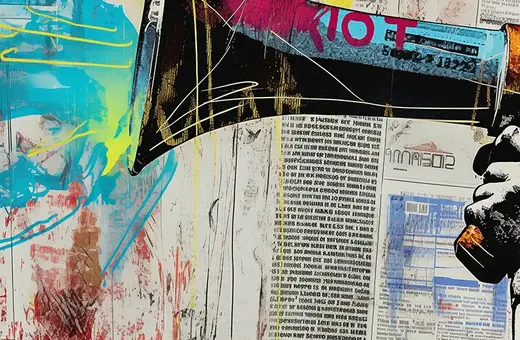Last week, the global media expressed its moral outrage at the Presidents of top U.S. universities, accusing them of softness on antisemitism and gross moral hypocrisy. They were accused of not stating that calls for the genocide of Jews were unequivocally against their code of conduct. Yet something more profound was going on here argues contributing writer and editor for the IAI, Charlie Barnett. From warnings of Thrasymachus in Plato’s Republic to Nietzsche in the Genealogy of Morals, the Presidents were weaponising morality. And unfortunately many of their critics were guilty of exactly the same.
Last week the global media was transfixed by a moment that some describe as historic. After the October 7th massacres and Israel’s subsequent military response, incidents of anti-semitism had risen by 337% in the U.S.. Many of these took place on university campuses. Elise Stefanik chaired a Congressional hearing into the matter and when the Presidents of Harvard and Pennsylvania were asked if calling for the genocide of Jews violated the universities’ rules or code of conduct, the answers were downright strange.
Instead of unequivocal condemnation, Claudine Gay, still President of Harvard, said, ‘it can be, depending on the context’. Elizabeth MacGill answered ‘if the speech turns into conduct, it can be harassment…it is a context dependant decision.’ Both statements suggesting somehow that there are contexts where calling for the genocide of Jews might not violate either university’s rules or code of conduct.
Both presidents received immense backlash for what many saw as their ambivalence towards antisemitism. That MacGill and Gay later condemned antisemitic calls for genocide in no uncertain terms, and the former resigned, went little way to ameliorate the resentment many felt towards them. But something more than mere outrage at their indecision was going on here.
___
Moral codes, like justice are weapons used by induviduals to advance their interests and worldview.
___
In Plato’s Republic, Thrasymachus made a stark observation about morality. ‘Justice is the advantage of the stronger’. Moral codes, like justice, are weapons used by individuals to advance their interests and worldview. And the idea of a morality based on timeless truths is a historical fabrication. A point that Nietzsche would converge on thousands of years later in the Genealogy of Morals.
Whilst many would take issue with the philosophical dimension of this conclusion, the sociological one is prophetic. Morality is weaponised all across our politics and institutions and no one can be considered blameless. It is precisely those we venerate at the pinnacle of our institutions, whether it be the conservative establishment, or the left-wing educational elite, who are most guilty of this.
To illustrate, in Gay and MacGill’s clarificatory remarks after the incident, both emphasised that the doubt in their testimony was to do with their personal and institutional attachment to free expression. Gay said, ‘our university embraces a commitment to free expression. That commitment extends even to views that many of us find objectionable, even outrageous’. And MacGill said ‘in that moment I was focussed on the university’s longstanding policies that align with the U.S. constitution which say that speech alone is not punishable’. Both appealed to the moral value of free expression in defence of their statements.






















Join the conversation